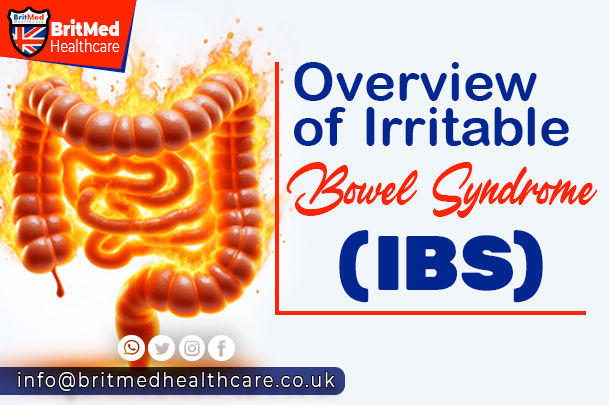Overview of Irritable Bowel Syndrome (IBS)
Irritable Bowel Syndrome (IBS) is a chronic gastrointestinal disorder that affects a significant portion of the global population, with estimates suggesting it impacts 9% to 23% of individuals worldwide 1. This condition is characterized by recurring abdominal pain, bloating, and alterations in bowel habits, which can severely affect the quality of life for those who suffer from it.
Definition and Causes
IBS is classified as a functional disorder, meaning there is no observable structural damage to the digestive system. The precise causes of IBS remain unclear, but several contributing factors have been identified:
Abnormal gut motility: The digestive tract’s muscles may contract and relax at irregular rates, leading to changes in bowel movements.
Food sensitivity: Certain foods can trigger symptoms in individuals with IBS.
Stress: Emotional stress can exacerbate symptoms and increase bowel activity.
Hormonal changes: Fluctuations in hormones, particularly during menstruation, pregnancy, or menopause, can influence IBS symptoms.
Symptoms
The symptoms of IBS can vary widely among individuals but commonly include:
-Abdominal pain or cramping: Often related to bowel movements, this pain can be constant or intermittent.
-Changes in bowel movements: This may manifest as diarrhea, constipation, or alternating between the two.
-Bloating: A sensation of fullness or swelling in the abdomen.
-Gas: Increased flatulence or discomfort from gas.
-Mucus in stool: The presence of mucus can indicate inflammation in the digestive tract.
Diagnosing IBS can be complex due to the absence of specific tests. Healthcare providers typically rely on:
Medical history: A comprehensive account of symptoms and previous medical conditions.
Physical examination: A thorough assessment of the abdominal area.
Diagnostic tests: Procedures like endoscopy or colonoscopy may be conducted to exclude other gastrointestinal disorders.
Treatment and Management
While there is no definitive cure for IBS, various strategies can help manage symptoms effectively:
Dietary changes: Identifying and avoiding trigger foods, following a low-FODMAP diet, or incorporating probiotics can be beneficial.
Medications: Options include antispasmodics, antidepressants, and laxatives to alleviate symptoms.
Stress management: Techniques such as relaxation therapy, meditation, or yoga can help reduce stress and anxiety.
Lifestyle modifications: Regular exercise, adequate sleep, and maintaining a healthy weight can also contribute to symptom relief.
Conclusion
Irritable Bowel Syndrome is a chronic condition that can significantly impact daily life. Although there is no cure, understanding the causes and symptoms of IBS allows individuals to take proactive steps in managing their health. Collaborating with healthcare providers to create a personalized treatment plan is essential for improving quality of life and effectively managing symptoms.
Websites:
https://www.hopkinsmedicine.org/health/conditions-and-diseases/irritable-bowel-syndrome-ibs
https://www.ncbi.nlm.nih.gov/pmc/articles/PMC4051916/
https://badgut.org/information-centre/a-z-digestive-topics/ibs/
References:
Britmed Healthcare: https://britmedhealthcare.co.uk/
Nightingale Hospital: https://www.nightingalehospital.co.uk/
You can also book on Top Doctors UK Contact us on WhatsApp 08009708017
Top Doctors: https://www.topdoctors.co.uk/doctor/ahmed-el-missiry




